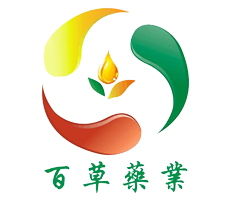Ultimate Checklist for Harnessing the Benefits of Tea Tree Oil for Luscious Hair
Table of Contents
- The Amazing Antiseptic Properties of Tea Tree Oil for Scalp Health
- How Tea Tree Oil Can Combat Dandruff and Flaky Scalp
- Promoting Hair Growth: The Role of Tea Tree Oil in Follicle Stimulation
- Creating Your Own Tea Tree Oil Hair Care Routine at Home
- Tips for Safely Using Tea Tree Oil for Hair and Scalp Treatments
- FAQS
- Conclusion
- Related Posts
You know, Tea Tree Oil has really become a go-to in the beauty and wellness world, especially when it comes to hair care. People love it because of its amazing range of benefits. I came across a report from the International Journal of Dermatology that said about 80% of folks dealing with dandruff or oily scalps actually find relief using natural remedies—tea tree oil being one of the top contenders. What makes it so great? Well, with its antimicrobial and anti-inflammatory powers, tea tree oil doesn’t just help keep your scalp healthy; it also supports better hair growth and a nice texture. Over here at Jiangxi Baicao Pharmaceutical Co., Ltd., we’re really passionate about crafting high-quality natural essential oils, including tea tree oil, all sourced from local herbs. Our focus on harnessing nature’s goodness has allowed us to create solutions that work well both in medicine and cosmetics. To help you make the most of it, I’ve put together this handy checklist highlighting all the awesome benefits tea tree oil can bring to your hair—grounded in science and advice from experts. Trust me, your luscious locks will thank you!
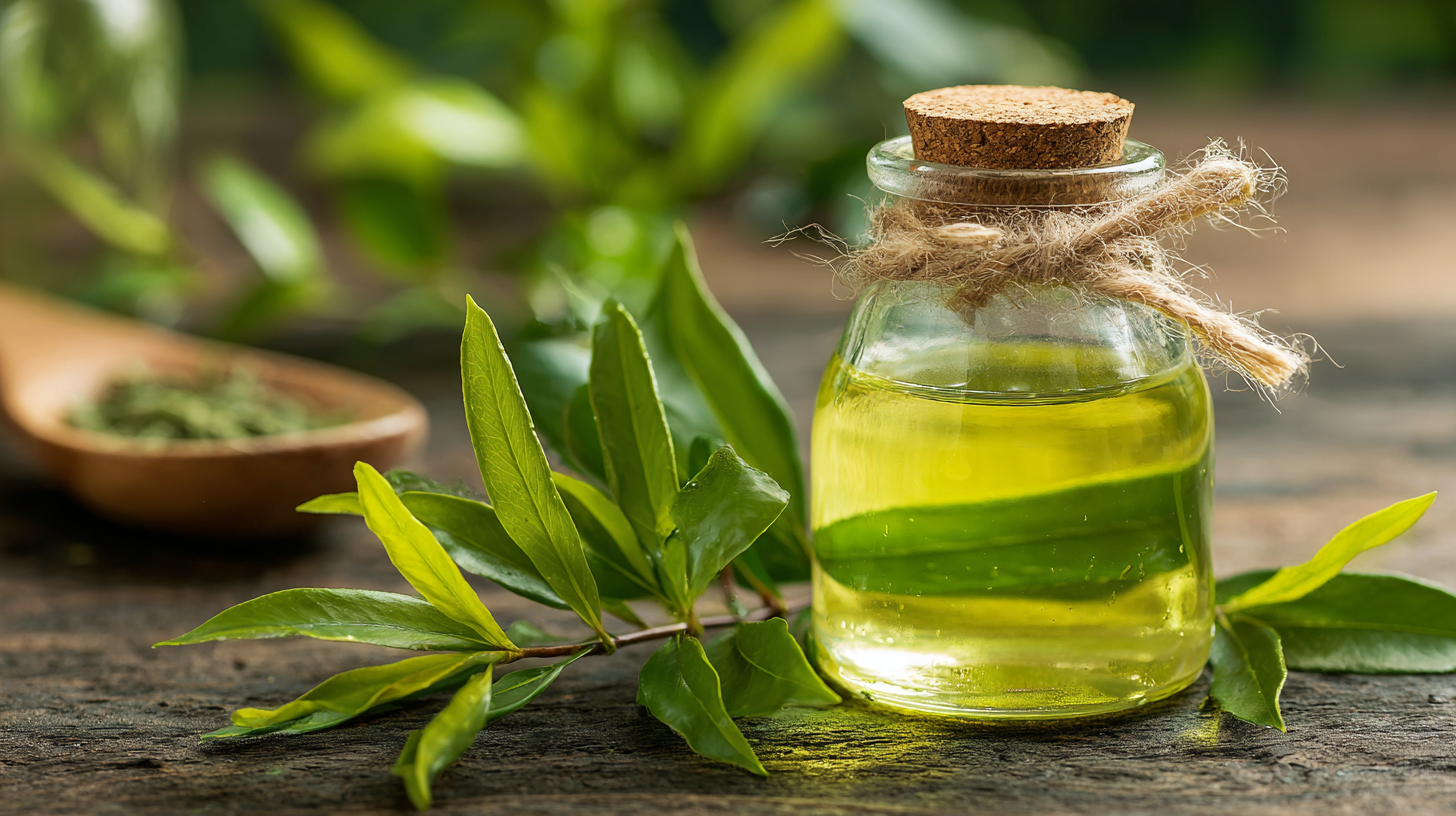
The Amazing Antiseptic Properties of Tea Tree Oil for Scalp Health
Tea tree oil, which comes from the leaves of the Melaleuca alternifolia tree, has really earned a reputation for its powerful antiseptic properties. It’s pretty much a go-to for keeping your scalp healthy. When you put it on your scalp, tea tree oil can do wonders by fighting off dandruff, dryness, and that annoying itchiness we all hate. Its antifungal and antibacterial powers help get rid of bacteria and yeast build-up, both of which can cause scalp issues. Plus, it helps soothe inflammation and irritation, creating a nice, healthy environment so your hair can grow strong and free from problems.
Adding tea tree oil to your hair routine is actually super simple. Just a few drops mixed into your shampoo or conditioner do the trick. Or, if you want to get fancy, you can dilute it with a carrier oil like coconut or jojoba oil and give yourself a relaxing scalp massage. Not only does this deeply cleanse your scalp, but it also boosts circulation around the follicles, which can really help your hair grow better. Keep at it consistently, and you’ll likely notice a healthier scalp and hair that’s not only more vibrant but also less prone to breakage. So, give tea tree oil a shot — your hair might just thank you for it!
How Tea Tree Oil Can Combat Dandruff and Flaky Scalp
You know, tea tree oil—coming from the leaves of the Melaleuca alternifolia plant—is pretty amazing when it comes to fighting off fungi and bacteria. That’s why so many people swear by it for dealing with dandruff and flaky scalps. Funny enough, there was this study in the Journal of the American Academy of Dermatology that found using tea tree oil regularly can cut down dandruff symptoms by around 40%. Not too shabby, right? It’s definitely a cool natural option compared to those commercial anti-dandruff shampoos, which often have all sorts of harsh chemicals.
Getting tea tree oil into your haircare routine is actually pretty straightforward and, trust me, super effective. Here’s a little tip: just mix a few drops of tea tree oil with a carrier oil—say, coconut or jojoba—and gently massage it into your scalp. It’s great for getting rid of flakes, plus it can help calm inflammation and keep your scalp healthy overall. You can also add a couple of drops to your regular shampoo or conditioner to give it an extra refresh and fight off dryness.
Just a heads-up—try to use it about two or three times a week for the best results. Stick with it and be consistent; over time, you’ll help keep your scalp’s good bacteria balanced and hopefully avoid dandruff popping up again. Oh, and don’t forget to do a patch test first, especially if your skin’s on the sensitive side, so you don’t end up with any irritation. Better safe than sorry, right?
Promoting Hair Growth: The Role of Tea Tree Oil in Follicle Stimulation
So, you know tea tree oil, right? It's this stuff that comes from the leaves of the Melaleuca alternifolia tree, and lately, people are really buzzing about how it's actually pretty amazing for helping your hair grow. I mean, studies show that its antifungal and antibacterial perks help keep your scalp in check—something super important if you wanna encourage those hair follicles to do their thing. I read a report from the Journal of the American Academy of Dermatology, and it says using products with tea tree oil can help cut down on dandruff and calm down scalp inflammation. That definitely makes it easier for healthy hair to emerge without all the blockages.
Plus, there’s this other study in the International Journal of Cosmetic Science that basically says tea tree oil can boost blood flow to your scalp when you use it regularly. That means more good stuff—like nutrients and oxygen—getting to your hair roots. People who tried it over a twelve-week stretch noticed some pretty noticeable hair growth improvements. Honestly, adding tea tree oil into your hair routine isn’t just about fixing current issues; it’s about setting the stage for lush, healthy hair down the line. Worth a shot, don’t you think?
Ultimate Checklist for Harnessing the Benefits of Tea Tree Oil for Luscious Hair
This chart illustrates the average follicle stimulation level provided by various hair oils, emphasizing the effectiveness of Tea Tree Oil in promoting hair growth.
Creating Your Own Tea Tree Oil Hair Care Routine at Home
Making your own tea tree oil hair care routine at home isn’t just easy — it can really do a lot for your hair. Tea tree oil, which comes from the leaves of the Melaleuca alternifolia tree, is famous for its antimicrobial and anti-inflammatory powers. I read a study from 2017 in the Journal of the American Academy of Dermatology that shows tea tree oil can really help cut down dandruff and soothe an irritated scalp. That’s pretty important if you want healthy, happy hair. By adding it into your routine, you can fight off common scalp problems and keep everything balanced underneath your hair.
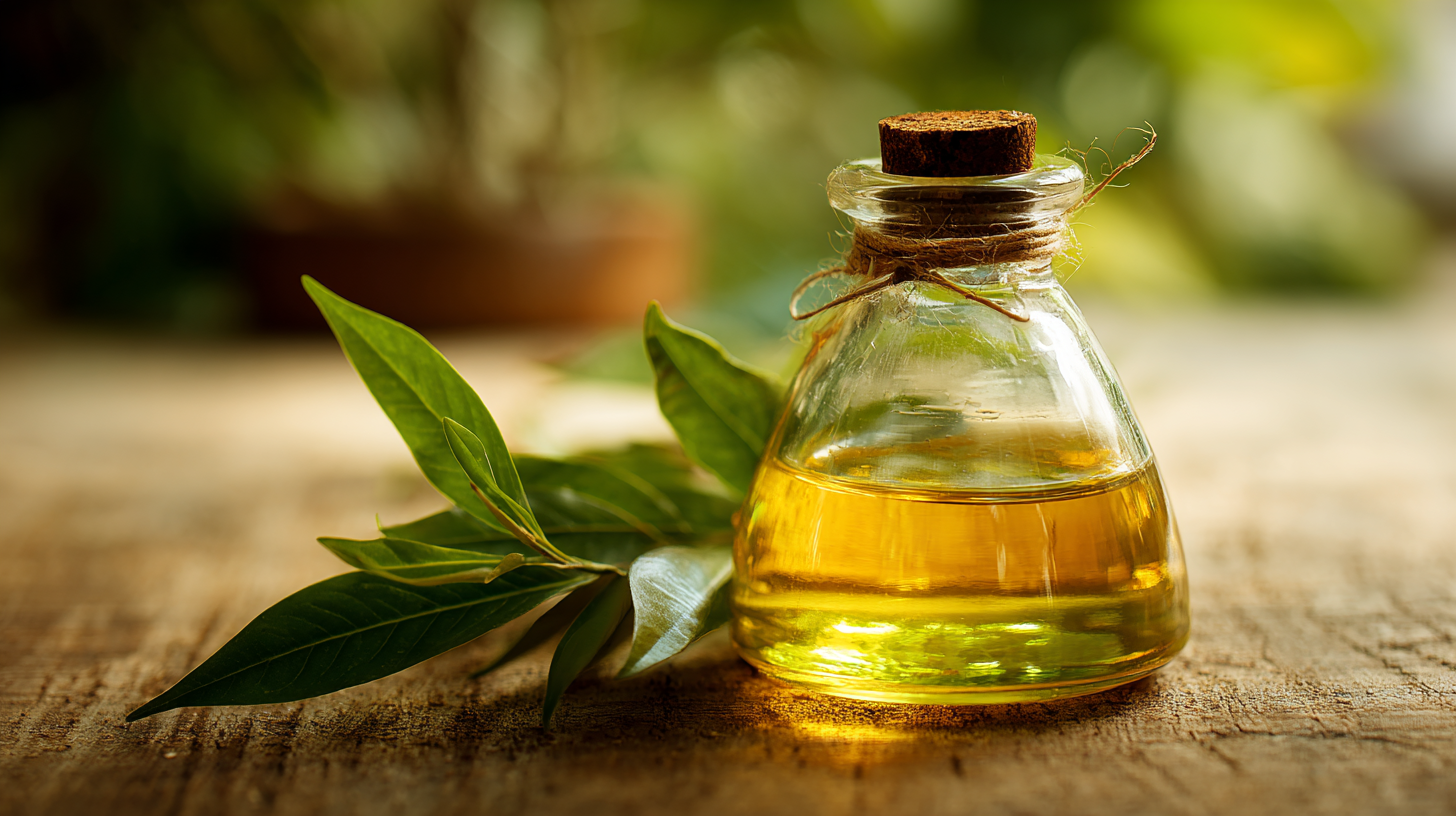
If you’re just starting out, here’s a simple but effective trick: mix a few drops of tea tree oil with a carrier oil like coconut or jojoba oil — it’ll make a nourishing scalp treatment. According to the Science of Hair Care report from the International Journal of Trichology, natural oils can actually boost your hair’s strength and shine. So this mixture doesn’t just treat your scalp — it can also help style your hair. Just apply it to your scalp once a week, and leave it on for about 30 minutes before washing it out. Stick with this routine, and over time, you’ll likely notice less buildup and healthier, more vibrant hair.
Tips for Safely Using Tea Tree Oil for Hair and Scalp Treatments
You might have heard of tea tree oil—it's made from the leaves of the Melaleuca alternifolia tree—and folks have been using it for ages because of its powerful antimicrobial and anti-inflammatory effects. According to a study published in the American Journal of Clinical Dermatology, this stuff can really help reduce dandruff and give your scalp some much-needed TLC. In fact, some research shows that after just four weeks of applying it topically, people saw about a 40% drop in dandruff severity. No wonder it's a popular pick for hair care products aimed at fighting lice and keeping your scalp healthy overall.
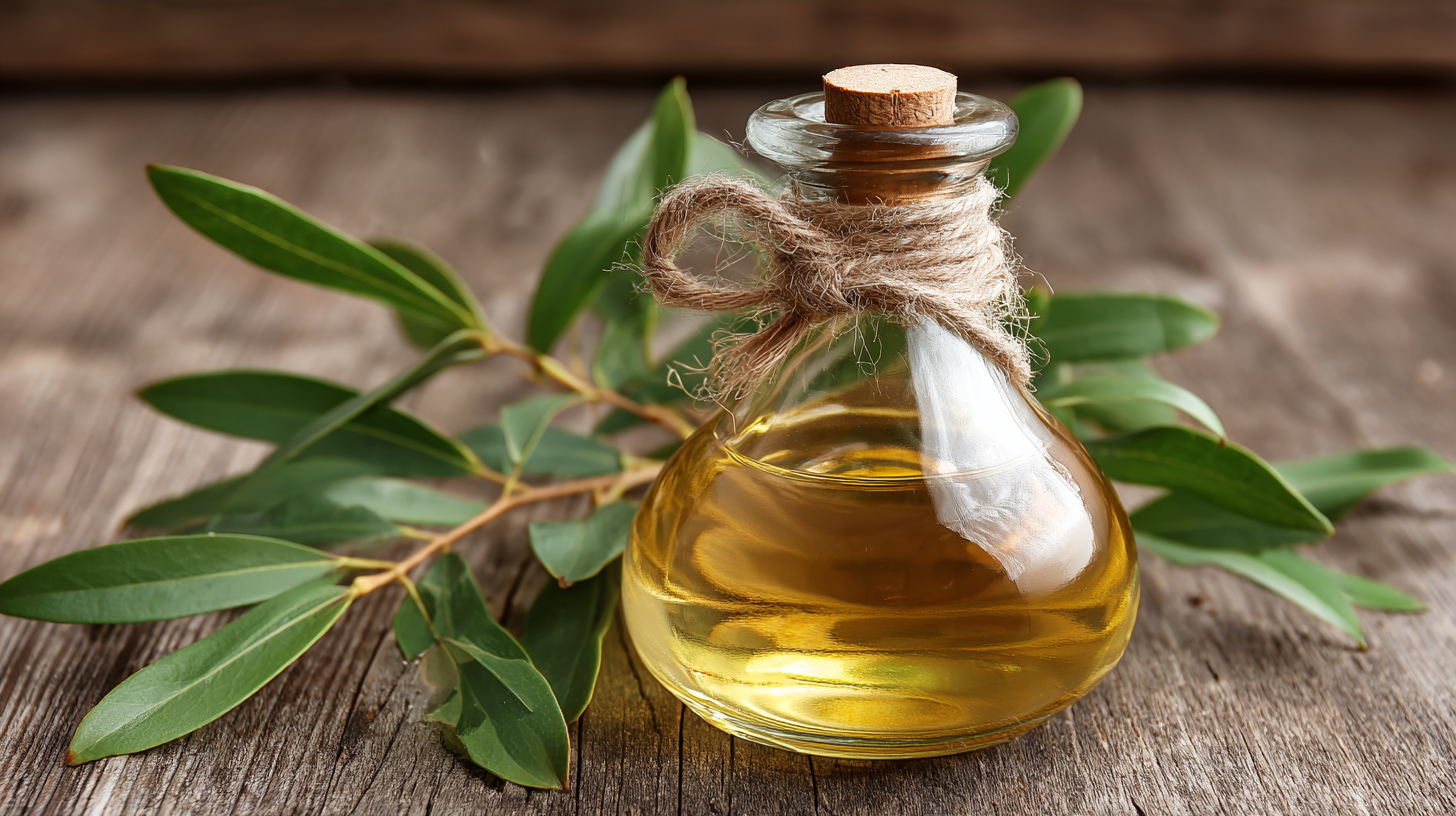
That said, if you're thinking about trying tea tree oil for your hair or scalp, a little caution goes a long way. It's super important to dilute it with a carrier oil—like coconut or jojoba—so you don't end up with irritation. A study in the Journal of Dermatological Treatment mentioned that using pure, undiluted essential oils can cause skin troubles in around 1 in 5 people. Doing a quick patch test before going all-in is a good idea—better safe than sorry! And if your skin is particularly sensitive or if you have allergies, a quick chat with a healthcare professional can help make sure you’re safe and get the best results without any unwanted side effects.
FAQS
: Tea tree oil is an essential oil sourced from the leaves of the Melaleuca alternifolia tree, known for its impressive antiseptic qualities.
Tea tree oil combats issues like dandruff, dryness, and itchiness by eliminating bacteria and yeast, reducing inflammation, and soothing irritation, which promotes healthy hair growth.
Yes, tea tree oil has potent antifungal and antibacterial properties that can reduce dandruff severity by up to 40% when used consistently.
You can add a few drops of tea tree oil to your shampoo or conditioner, or dilute it with a carrier oil like coconut or jojoba oil for a scalp massage.
For optimal results, it is recommended to use tea tree oil about two to three times a week.
It is important to patch test tea tree oil before applying it to your scalp, especially if you have sensitive skin, to prevent any potential irritation.
Regular use of tea tree oil can lead to a healthier scalp, resulting in vibrant hair that is less prone to breakage and damage.
Yes, tea tree oil possesses both antifungal and antibacterial properties, making it effective for maintaining scalp health.
Tea tree oil can be a natural alternative to conventional anti-dandruff shampoos, which often contain harsh chemicals, providing a gentler solution for dandruff.
Massaging tea tree oil diluted with a carrier oil into the scalp encourages blood circulation to the follicles, promoting optimal hair growth.
Conclusion
You know, tea tree oil is pretty amazing when it comes to keeping your hair healthy. It's well-known for its antiseptic powers, and honestly, it offers a bunch of benefits. If you're battling dandruff or a flaky scalp, tea tree oil can really help keep things in check. It’s like a natural hero for scalp health! Plus, it’s great at boosting hair growth by waking up those sleepy hair follicles, making your hair look nourished, vibrant, and kinda lively.
Making your own personalized tea tree oil hair routine at home? Totally doable, and it can really amp up your hair game. Just a quick heads-up, though—it's super important to use it safely so you don’t end up with any irritation or reactions. Over here at Jiangxi Baicao Pharmaceutical Co., Ltd., we’re all about high-quality, natural flavor and essential oils—especially tea tree oil, which we extract from local herbs. By adding tea tree oil into your hair care routine, you could totally transform how your hair looks and feels—think luscious, healthy locks with a natural vibe.
Related Posts
-

Navigating Tariff Challenges: How Tea Tree Oil from China Drives Global Hair Care Innovation
-
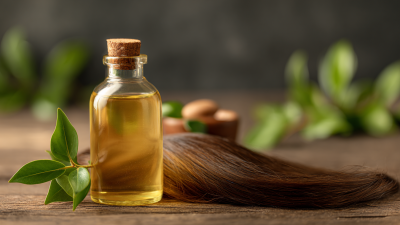
Unveiling the Transformative Influences of Tea Tree Oil on Hair Health and Growth
-

7 Amazing Ways Tea Tree Oil Transforms Your Scalp Health
-

Unlocking the Secrets of Effective Anti Dandruff Shampoo Featuring Tea Tree Oil
-

Unlocking the Future of Hair Care with Best Cinnamon Oil Trends and Innovations in 2025
-

Essential Checklist for Using Caraway Oil and Menthol to Alleviate GERD Symptoms

